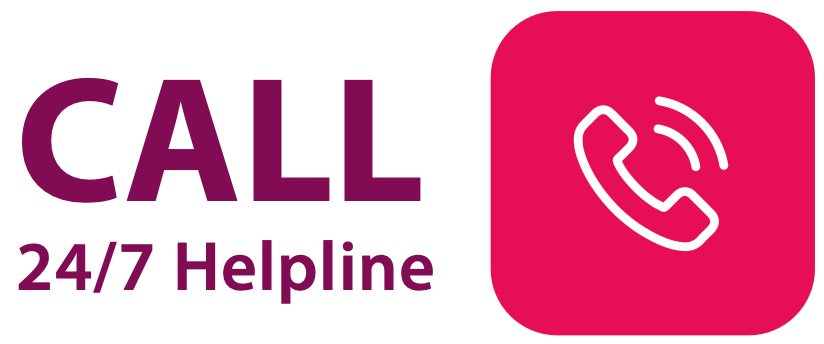



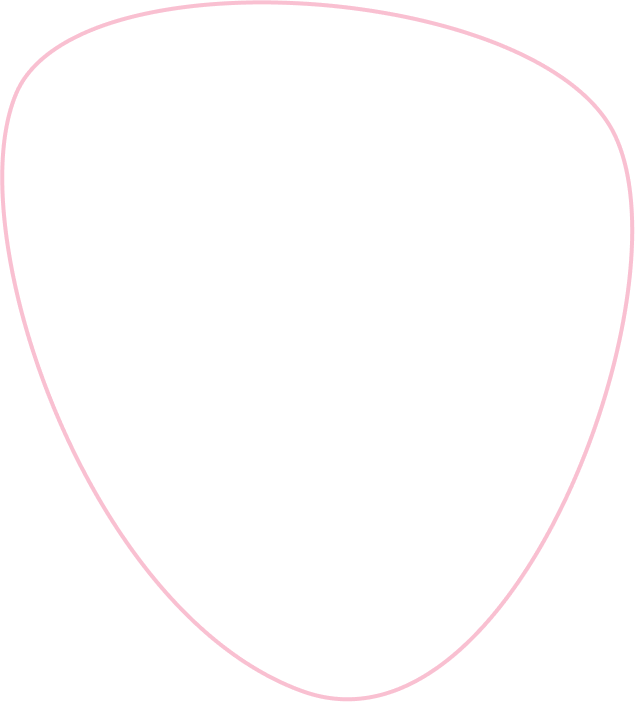
Our goal is to make coronary angiography affordable & accessible for everyone, without compromising on quality. We put your heart health first with our cutting-edge angiography techniques. Discover the advantages of coronary angiography with us and learn how they guarantee accurate cardiac diagnosis and care.
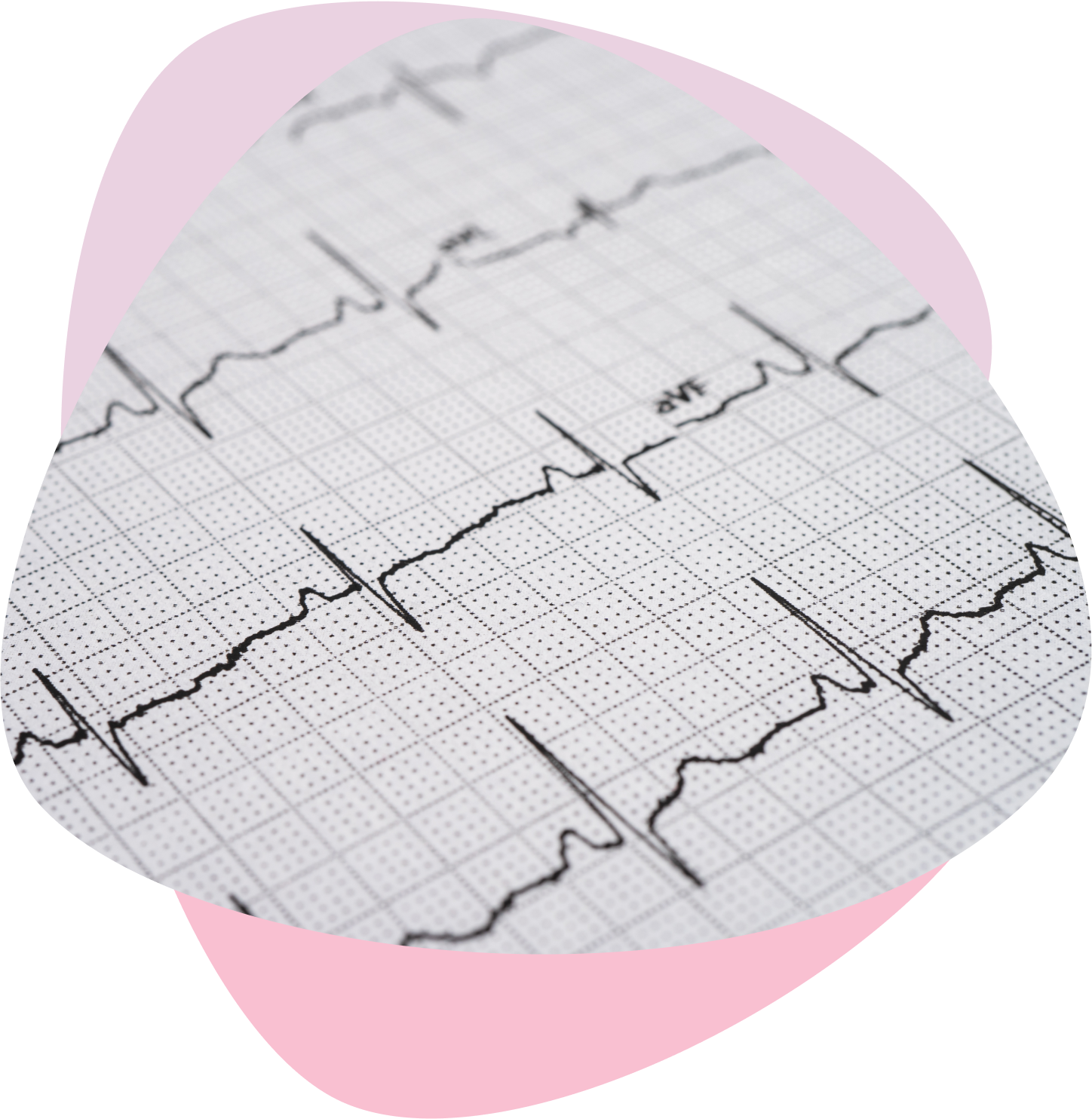
Coronary Cardiac angiogram procedure provides precise images of your coronary arteries, helping to identify blockages or abnormalities.
The procedure offers immediate information on the condition of your heart arteries, aiding in quick decision-making for treatment.
The angiogram is a minimally invasive procedure with a short recovery time, allowing you to return to your daily activities swiftly.
The detailed images from the angiogram guide further treatments, such as angioplasty or surgery, ensuring targeted intervention.
The procedure allows for tailored treatment plans based on the specific condition of your coronary arteries.
The angiogram offers real-time monitoring of blood flow and blockages, helping to manage your heart health effectively.
A coronary angiogram is a procedure that uses a special dye and X-rays to see how blood flows through the coronary arteries. During the procedure, a catheter is inserted into a blood vessel, usually in your arm or groin, and guided to the heart. The dye is then injected through the catheter, making the coronary arteries visible on X-ray images. This helps in identifying blockages or abnormalities in the arteries, allowing for accurate diagnosis and treatment planning.
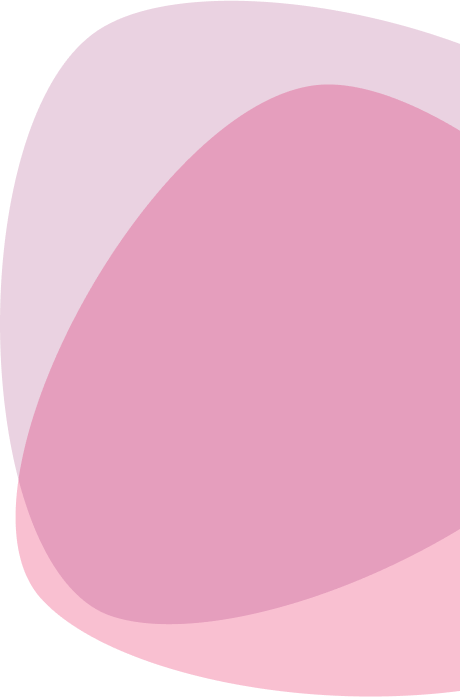
Experience comprehensive cardiac care at Kauvery Hospital, including:
Provides detailed images to identify blockages or other coronary artery issues.
Combines diagnosis with treatment, such as angioplasty or stent placement, during the same procedure.
Measures pressure differences across a coronary artery stenosis to assess the necessity of treatment.
Uses a tiny ultrasound probe to provide detailed images of the artery walls, helping to guide treatment decisions.
Uses light waves to capture detailed images of the coronary arteries, aiding in precise diagnosis and treatment.
A non-invasive imaging technique that uses CT scanning to obtain detailed images of the coronary arteries, helping to identify blockages and other abnormalities without the need for catheter insertion.
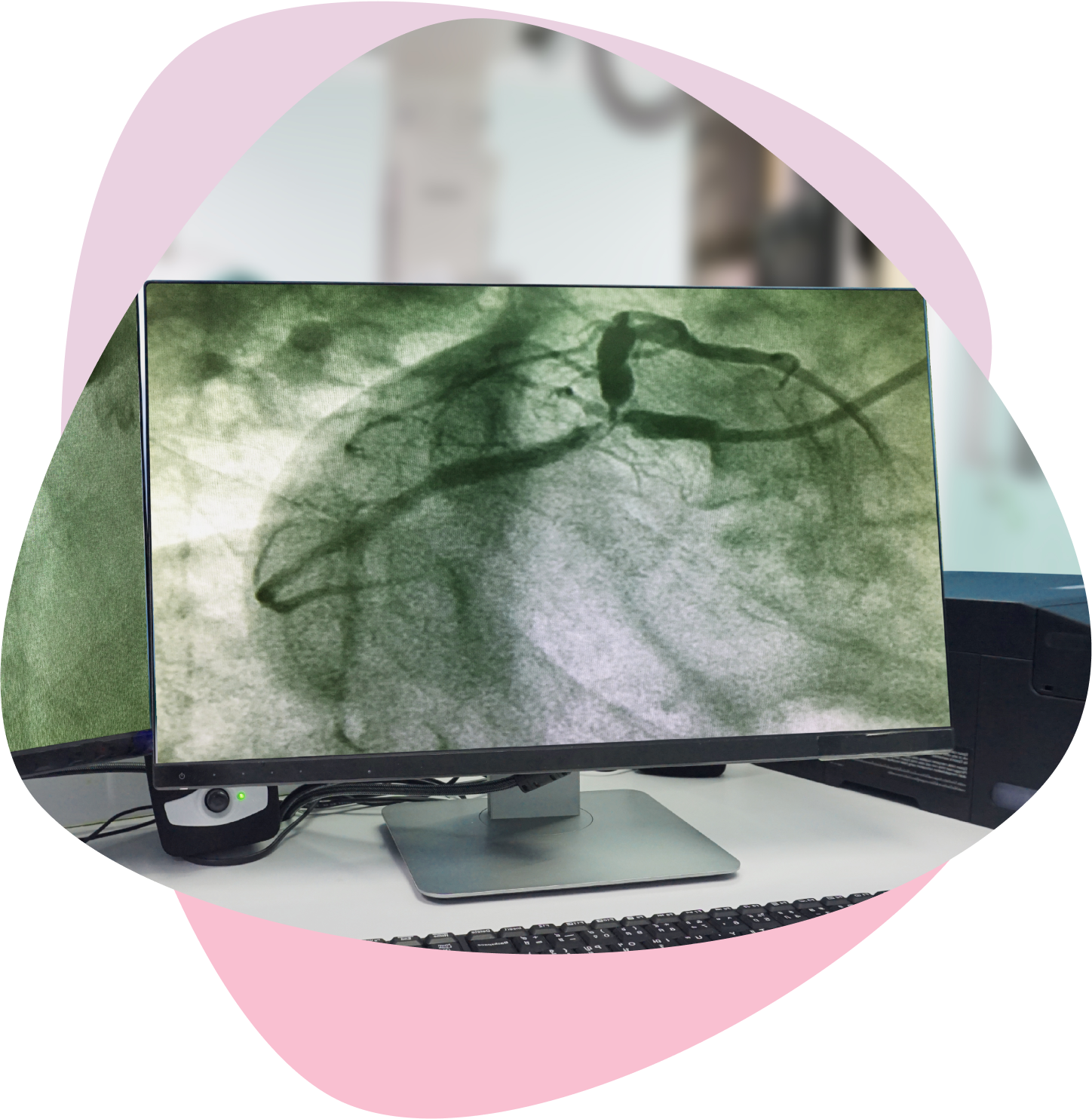
You may need a coronary angiogram if you have:
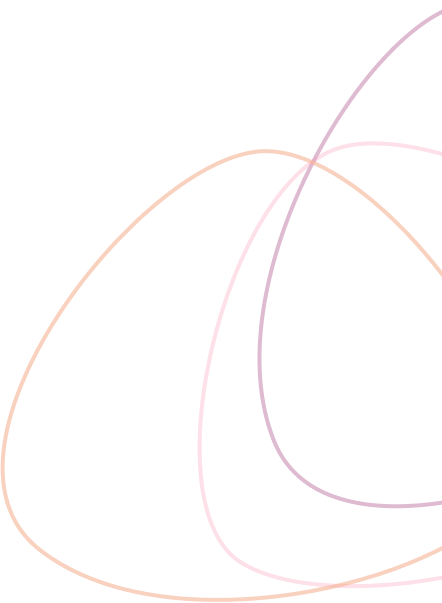
A coronary angiogram is essential in diagnosing and managing various heart conditions, such as:

Identifies blockages in the coronary arteries that can lead to heart attacks.
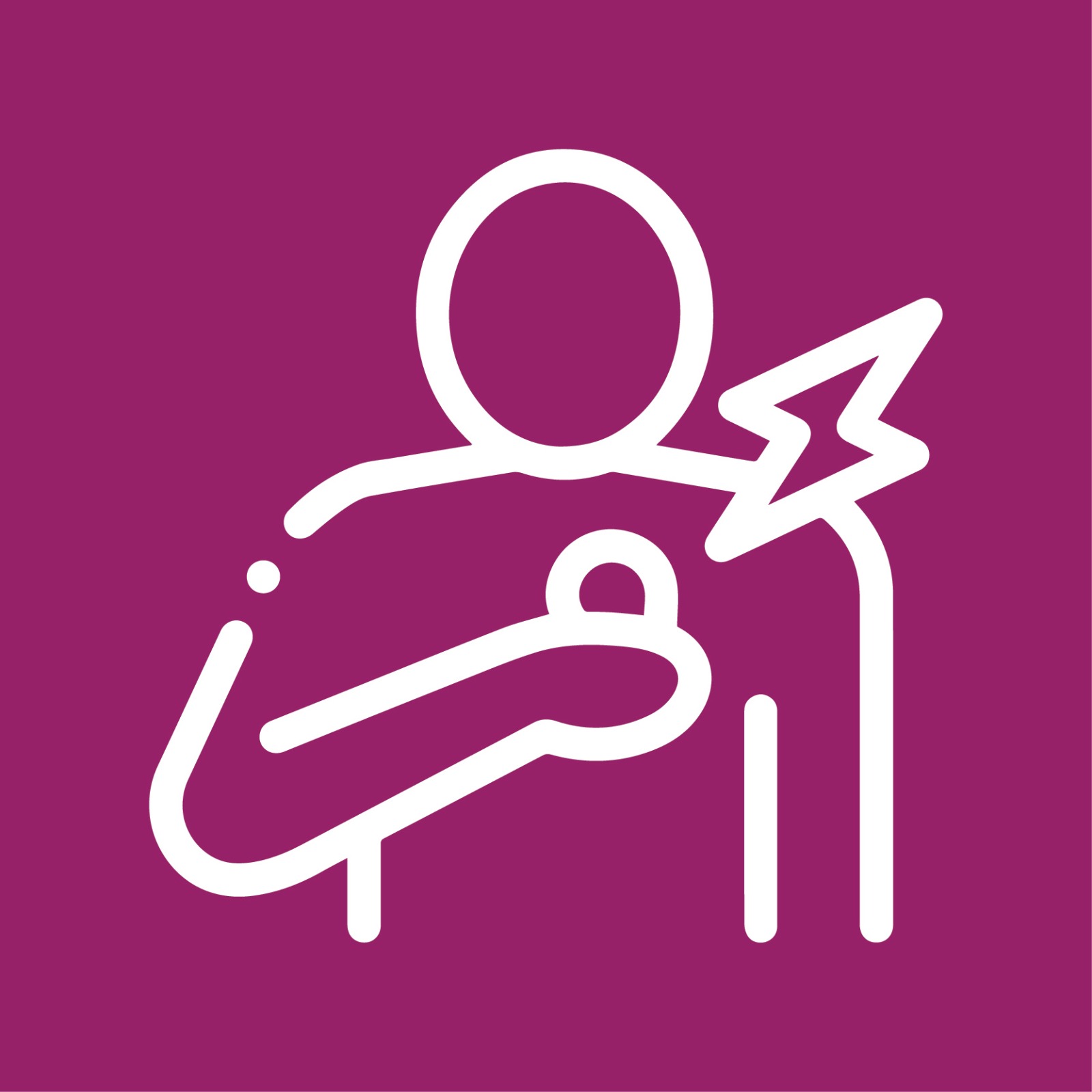
Diagnoses the cause of chest pain and assesses the severity of coronary artery narrowing.
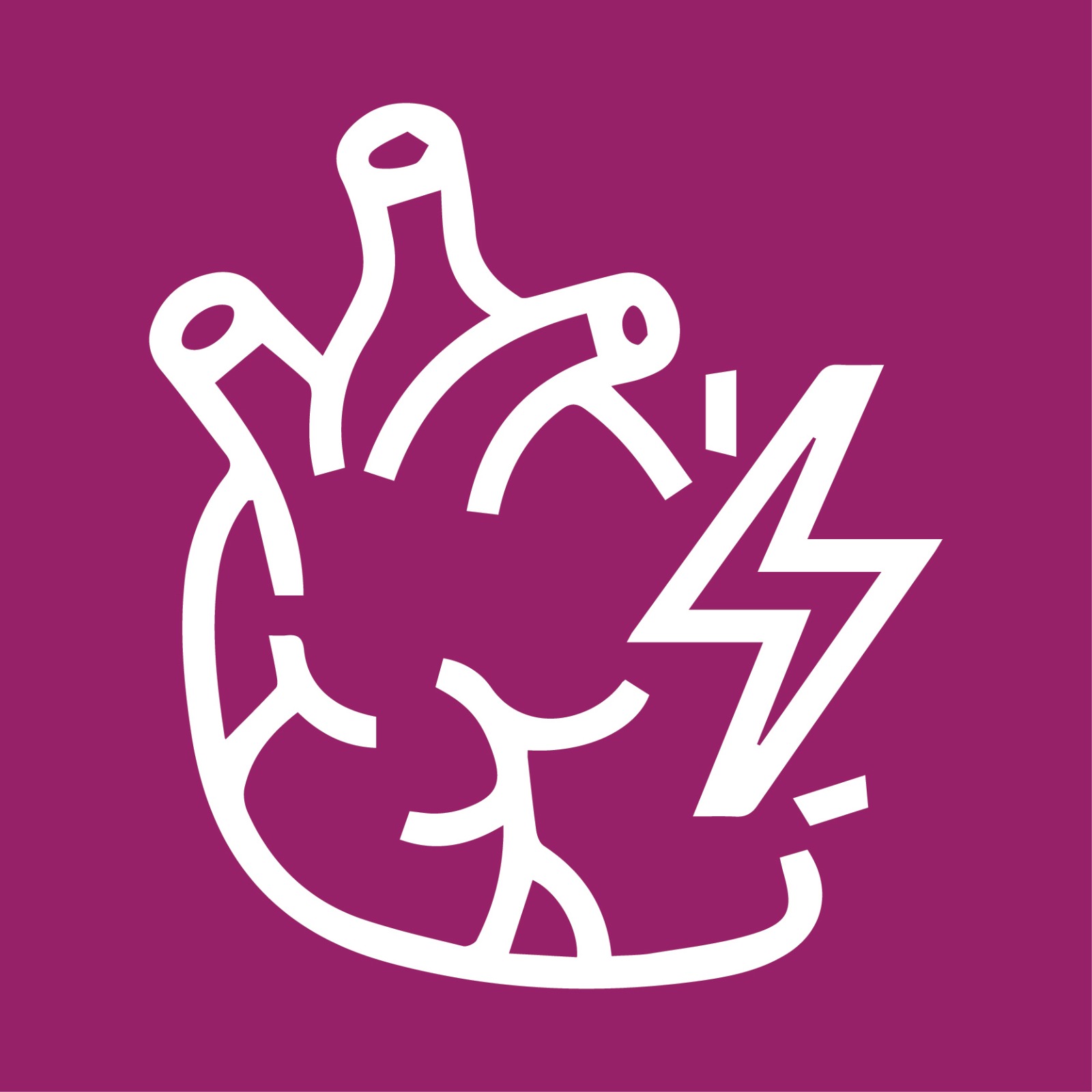
Locates and assesses blockages causing the heart attack, guiding treatment decisions.

Provides detailed images of heart structures, helping in the diagnosis and planning of treatment.

Assesses the coronary arteries before valvular surgery to ensure they are not contributing to symptoms.
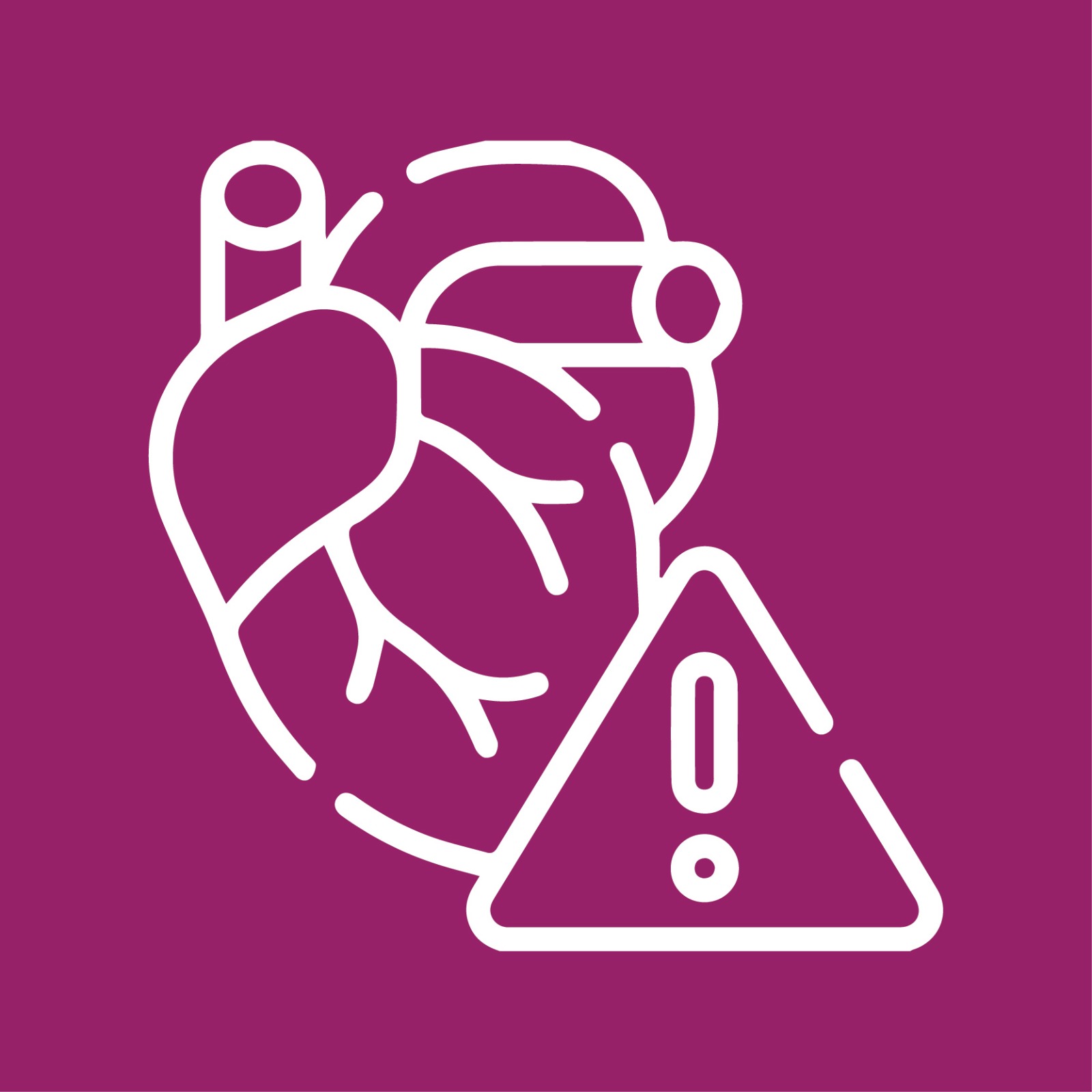
Determines if blocked arteries are causing or contributing to heart failure.
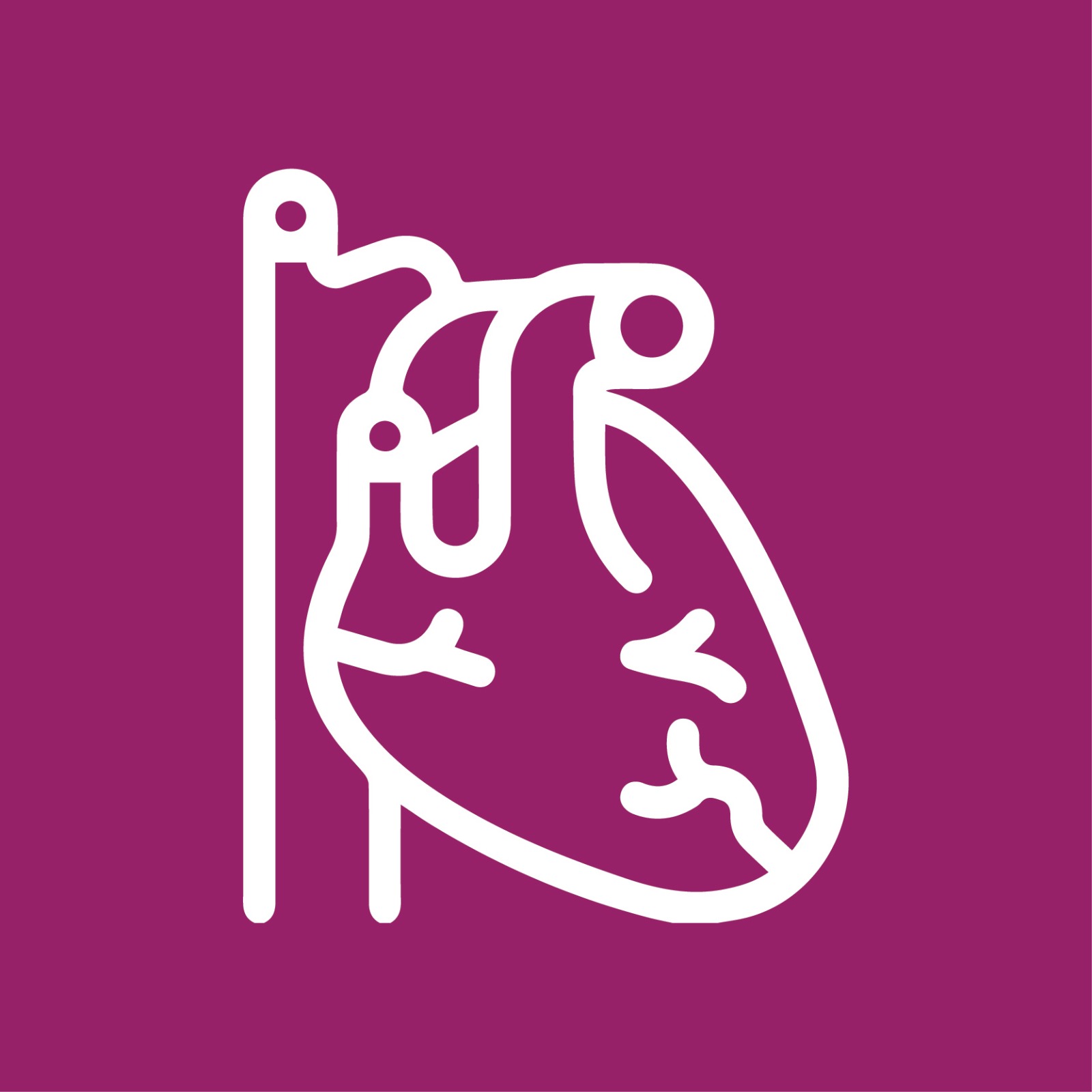
Identifies unusual artery structures or blockages that can lead to complications.
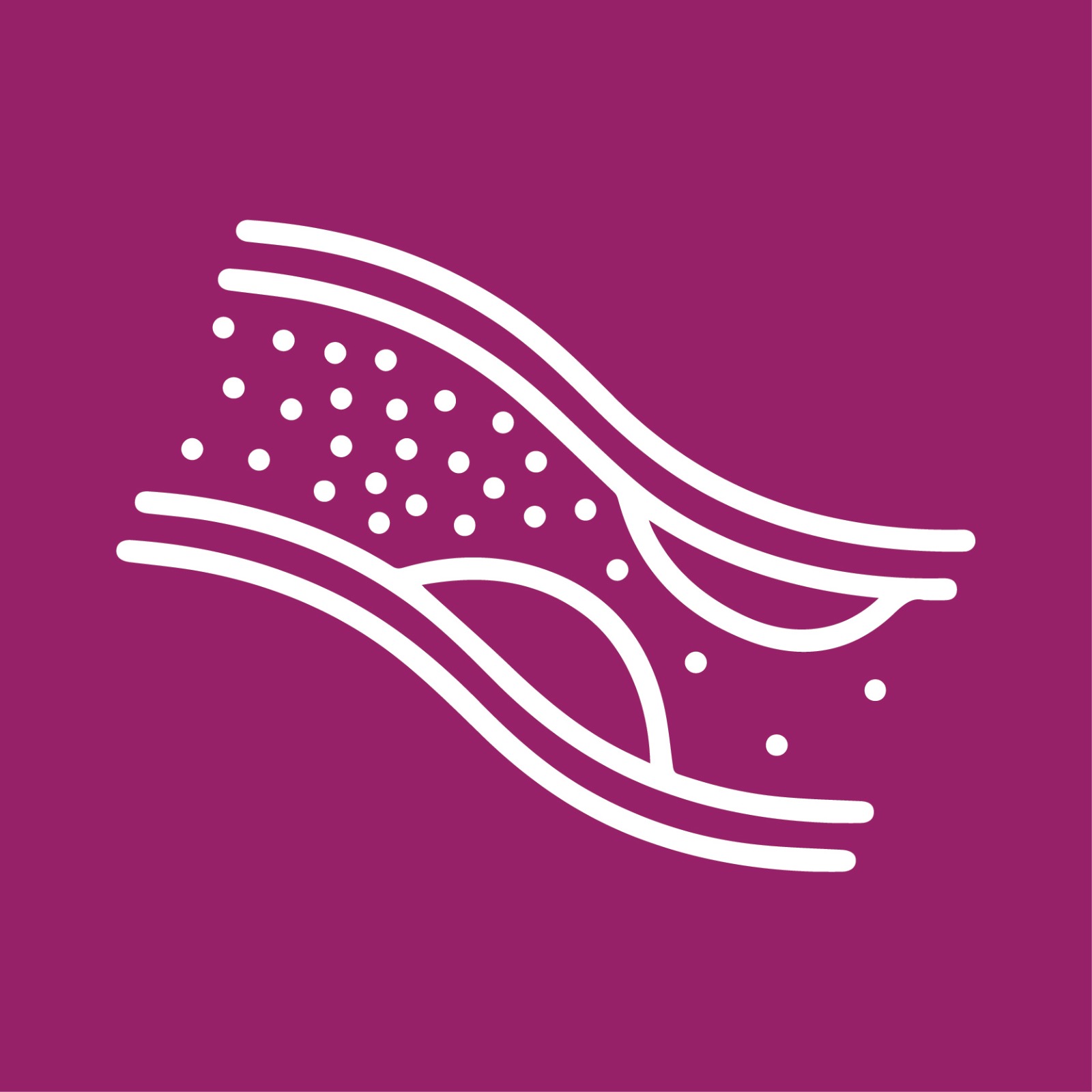
Assesses the extent of plaque buildup in the coronary arteries, guiding management and treatment.

We perform coronary angiography at Kauvery Hospital using state-of-the-art technology, guaranteeing accurate diagnosis and efficient treatment of cardiac diseases. Our cutting-edge techniques prioritise precision, comfort, and patient safety.
Our high-resolution imaging provides clear and detailed views of your coronary arteries.
Detailed Explanation:
Kauvery Hospital uses state-of-the-art high-resolution imaging technology for coronary angiograms.
This advanced imaging allows our cardiologists to see detailed, clear pictures of your coronary arteries, helping them identify blockages or other issues with pinpoint accuracy.
The precise images aid in making informed decisions about your treatment, whether it involves medication, lifestyle changes, or further procedures like angioplasty or surgery.
By utilising high-resolution imaging, we ensure that each patient receives a thorough and accurate diagnosis, which is crucial for effective treatment and better health outcomes.
We employ minimally invasive techniques to enhance patient comfort and reduce recovery time.
Detailed Explanation:
At Kauvery Hospital, our coronary angiograms are performed using minimally invasive techniques. This approach typically involves a small incision in the wrist or groin, through which a thin catheter is guided to the heart.
The minimally invasive nature of this procedure means less pain, lower risk of complications, and a quicker recovery compared to traditional methods. Patients often go home the same day and can return to their normal activities much sooner.
Our focus on minimally invasive techniques ensures that our patients experience less discomfort and faster healing, making the process as smooth and stress-free as possible.
Our advanced diagnostic tools provide comprehensive assessments of heart health.
Explanation:
AKauvery Hospital integrates advanced diagnostic tools with coronary angiograms to provide a comprehensive evaluation of your heart health.
These tools include intravascular ultrasound (IVUS) and fractional flow reserve (FFR) measurements, which offer detailed insights into the condition of your coronary arteries and blood flow.
IVUS provides real-time images from inside the blood vessels, while FFR measures pressure differences to assess the severity of any blockages.
By combining these advanced diagnostics with our angiogram procedures, we can deliver a more complete and accurate diagnosis, ensuring that you receive the most effective and personalised treatment plan for your heart condition.
Intravascular ultrasound imaging provides real-time, high-resolution images of the blood vessel's internal structure, allowing for better assessment of the severity and characteristics of the stenosis.
Digital subtraction angiography (DSA) systems with advanced imaging capabilities enable interventional radiologists to visualise blood flow dynamics and accurately assess the results of fistuloplasty in real-time.
Pre-procedural 3D printing and modelling techniques allow for the creation of patient-specific vascular anatomical models, that helps optimise procedural efficiency and outcomes.
At Kauvery Hospital, our commitment to advancing cardiac care is demonstrated by our cutting-edge Minimally Invasive Cardiac Surgery (MICS) techniques. Using the latest technology, our expert team offers patients safer, more effective, and less invasive treatment options for various cardiac conditions.
Our high-resolution imaging provides clear and detailed views of your coronary arteries.
Detailed Explanation:
Kauvery Hospital uses state-of-the-art high-resolution imaging technology for coronary angiograms.
This advanced imaging allows our cardiologists to see detailed, clear pictures of your coronary arteries, helping them identify blockages or other issues with pinpoint accuracy.
The precise images aid in making informed decisions about your treatment, whether it involves medication, lifestyle changes, or further procedures like angioplasty or surgery.
By utilising high-resolution imaging, we ensure that each patient receives a thorough and accurate diagnosis, which is crucial for effective treatment and better health outcomes.
We employ minimally invasive techniques to enhance patient comfort and reduce recovery time.
Detailed Explanation:
At Kauvery Hospital, our coronary angiograms are performed using minimally invasive techniques. This approach typically involves a small incision in the wrist or groin, through which a thin catheter is guided to the heart.
The minimally invasive nature of this procedure means less pain, lower risk of complications, and a quicker recovery compared to traditional methods. Patients often go home the same day and can return to their normal activities much sooner.
Our focus on minimally invasive techniques ensures that our patients experience less discomfort and faster healing, making the process as smooth and stress-free as possible.
Our advanced diagnostic tools provide comprehensive assessments of heart health.
Explanation:
AKauvery Hospital integrates advanced diagnostic tools with coronary angiograms to provide a comprehensive evaluation of your heart health.
These tools include intravascular ultrasound (IVUS) and fractional flow reserve (FFR) measurements, which offer detailed insights into the condition of your coronary arteries and blood flow.
IVUS provides real-time images from inside the blood vessels, while FFR measures pressure differences to assess the severity of any blockages.
By combining these advanced diagnostics with our angiogram procedures, we can deliver a more complete and accurate diagnosis, ensuring that you receive the most effective and personalised treatment plan for your heart condition.
Meet Our Pioneering Interventional Cardiologists

Senior Consultant - Interventional Cardiology

Senior Consultant - Interventional Cardiology

I have been visiting Dr. Krishna Shaw since my first delivery and now the second one. Extremly satisfied with her treatment. she listens to all our problems and suggests the course of action patiently.
All the doctors and staff is very good. Special thanks to Mr. Nagendra (patient care) who has taken care a lot.
I was admitted at Kauvery hospital. Everything is best here. The service , food , facilities, bedding , rooms , OT and most importantly dr Dhyaneshwar. I had a surgery and everything was world class